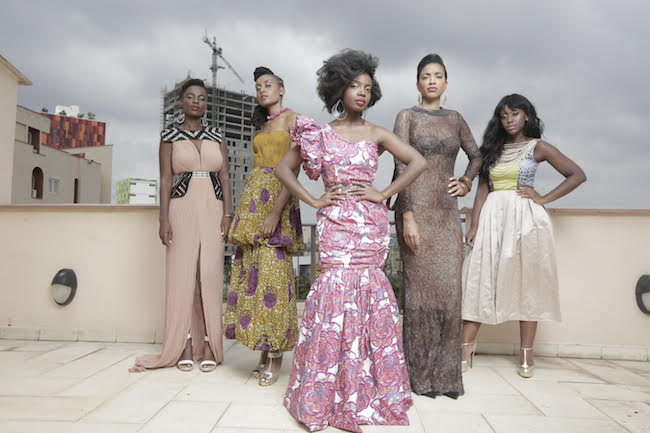An African Director: Nicole Amarteifio ’04
Nicole Amarteifio is putting cosmopolitan African women in the spotlight

The cast of "An African City"
Nicole Amarteifio ’04 is a television director who is highlighting a different narrative about women in Africa. Her web series “An African City,” brings together a cast of women – Nana Yaa, Sade, Ngozi, Zainab and Makena – who would be recognizable to any fans of “Sex and the City’s” Carrie, Samantha, Charlotte and Miranda. But instead of New York City as a backdrop, it’s Ghana’s capital city, Accra. “An African City’s” presentation of African women as being independent and empowered is a unique one that is rarely displayed both within the continent and around the world.
Amarteifio shares a lot in common with her characters; like several, she grew up in Ghana before leaving to attend a university in the west. Like all of them, she chose to return home to build her future there rather than remain abroad. After graduating from Brandeis as an African and Afro- American Studies major, she earned her master’s degree in corporate communications and public relations from Georgetown. She worked as a social media strategist for the World Bank in Washington, but ultimately was more intrigued by the stories she could tell from home.
The show, now in production for its third season, is Amarteifio’s first creation for television, but it looks like her small screen career is only just beginning. She is in negotiations for a project with a major U.S. network and she has also produced a pilot of a new show called “The Republic,” which focuses on a political fixer in Accra.
Amarteifio returns to the Brandeis Campus on April 26 to screen an episode of “An African City” and participate in a conversation at Wasserman Cinematheque with Associate Professor of African and Afro-American Studies Carina Ray; the event was sponsored by the Office of the President and Office of the Provost among other departments. BrandeisNOW caught up with Amarteifio ahead of her visit:
Prior to launching An African City you hadn’t worked in television or film. What made you decide this was the way you wanted to tell a story?
Initially, I wanted to disrupt the narrative of Africa by working from within development agencies that I felt were partially responsible for that very narrative. However, film was just a more fun way of going about it!
How did your work as an African and Afro- American Studies major and other experiences you had at Brandeis influence your willingness to take the risk of becoming a director?
I consider An African City part of a movement: to disrupt the single narrative of Africa. You can’t study at Brandeis and not get inspired by the fight for justice.
What are some of the lessons you learned from making An African City that you are now bringing to The Republic?
An African City just validated to me that stories of educated, well-to-do African women are severely needed. In An African City, women are in control of their sexuality. In Republic, women are in control of their politics, of their nation. I love that.
The lesson is to just stay true to what you are trying to accomplish. If you don't tell your story the way you want to tell your story, it's not your story anymore - it's somebody else's.
An African City has been lauded for displaying an aspect of African life that many westerners aren’t used to seeing, and critiqued for focusing on the elite. When you think of the numerous American series that focused on the lifestyles of the well-to-do, does it seem strange to you that you’ve received that critique?
If people want to discuss the role the elite have played in the under-development of the continent of Africa, that is a conversation in which I am willing to engage. However, women like Nana Yaa, Sade, Ngozi, Zainab and Makena exist. If the wealth of five highly educated, professional African women is a problem, then it shows how ingrained the single story of Africa is in our psyche. I don’t understand why their story is unacceptable, but the faces of nameless women exploited on the marketing materials of the billion-dollar aid industry complex are.
Categories: Alumni





